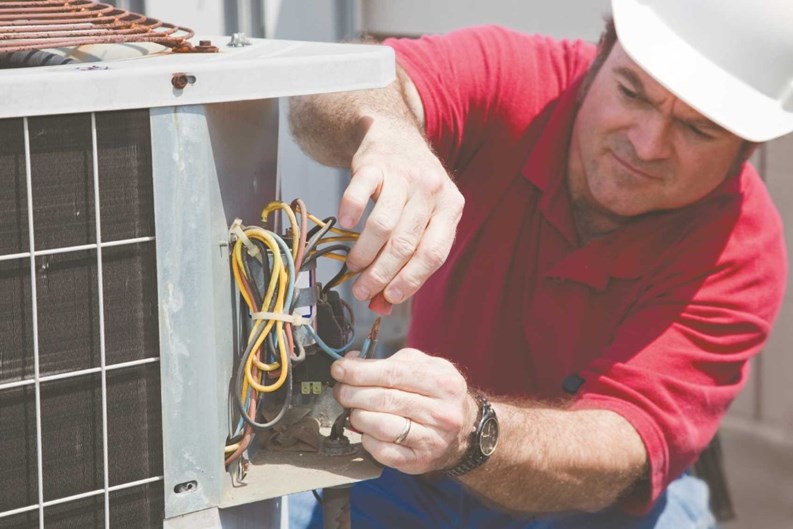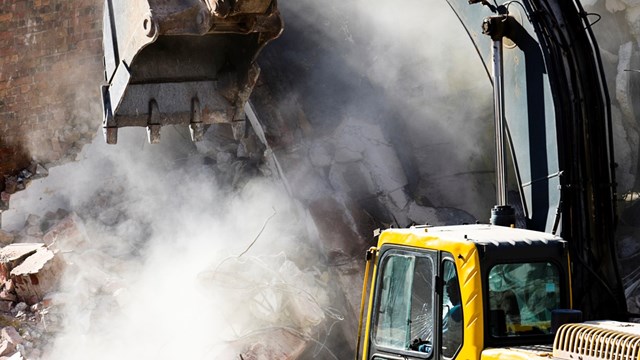Most people wouldn't buy a home without an attorney, or start a business without an accountant. In the same way those professionals assist with complex legal and financial processes, a civil engineer trained in the specific field of design and construction can help your HOA navigate the budgeting and capital improvement landscape by conducting a reserve study.
Many of New Jersey’s condo communities were built decades ago, and in many cases, deteriorating infrastructures are now presenting HOAs with serious maintenance and improvement costs. In cases where neither the condo association nor the property management company is equipped to deal with such technical issues, hiring a civil engineer can be helpful. A prudent civil engineer will thoroughly evaluate the property, consider cost-saving options, minimize unplanned capital expenditures, insure that governmental regulations are being adhered to, and make sure that costs are based in reality rather than on averages or on hypothetical life-expectancy tables.
Look Before You Leap
For example, an association may request an evaluation of the building’s roof system. In addition to the building’s location, there are many other characteristics that affect the longevity of a roofing system. A trained professional (an engineer or architect in this case) will typically have the expertise to evaluate many other characteristics of the roof. These characteristics include roof pitch, sun exposure, presence of overhanging trees, existence of proper eaves, gutters and flashing, quality of material and installation, extent of cuts and corners, ventilation, roof color, and a host of other affecting factors. An engineer or architect with the appropriate background can provide an informative assessment of the actual roof system conditions.
Another example might be an asphalt-paved roadway. Like roofing materials, pavement also deteriorates over the course of time due to weather and ongoing wear from traffic. But a close evaluation of a paved road can often expose many other underlying issues that should be considered prior to investing in a new pavement overlay or repavement project.
Water, for example, has an enormous impact on a paved road. If a paved surface is continually in need of repair, or fails to last as long as its projected useful life, a professional civil engineer may expose the reasons for the failure and suggest new approaches or methods for repairs. Perhaps the roadway system is failing due to poor drainage, or subsurface soil conditions are shortening its useful life. A full assessment and making recommended repairs might add another 10 years to the life of the surface. These options may be of interest to the community association, but they would never know unless a qualified individual is engaged.
Obtaining the Necessary Permits
In order to relieve the burdens associated with things like snow removal, upkeep of roadways, and so forth, many municipalities in which large condo developments are located require that the maintenance of those developments be handled by the condo association themselves. With many large developments showing their age, the bill for maintaining their deteriorating infrastructure is coming due. Faced with the expense and inconvenience of large repair or replacement projects, condo associations—particularly the older ones— would do well to reevaluate how they are meeting their infrastructure needs.
Leisure Village is an active adult community in Lakewood that is home to nearly 4,500 residents and provides a good example of the potential scope of responsibilities association administrators must shoulder. The community, which was built in 1963 on 457 acres of land, has 2,433 units, 21 miles of lighted streets, 51 miles of sidewalks, seven freshwater lakes, two recreation centers, two swimming pools, a nine-hole pitch-and-putt golf course and several park areas. With respect to governance, it resembles a small town in nearly every respect.
When it comes time to repair or upgrade Leisure Village's miles of road, or to map out a long-range plan for maintaining the community's various major amenities, hiring an engineering and/or architectural professional can smooth both the permitting and construction process. Many engineering and architectural professionals have experience in this area, as well as knowledge of the local regulations that can help avoid costly fines for non-compliance. The right professional understands activities that are within the jurisdiction of an area’s regulatory agencies and they are accustomed to providing clients with the cost of permits. Engineering professionals are often a part of the permitting process. New Jersey is arguably one of the most difficult states with respect to regulation. Without the advice of a civil engineer, an unwitting condo association could incur costly fines from state regulatory agencies. For example, the simple matter of replacing a fence bordering a stream could involve both wetlands and flood plain regulations. Simply put, a competent engineering firm understands state, county and local regulations pertaining to sanitary sewer, potable water, stormwater management, natural resource protection, soil erosion control, highway access and more. Additionally, most engineering professionals are also experienced in reviewing contractors’ bid documents and providing construction oversight to ensure construction activities are performed in accordance with plans and specifications.
Many of New Jersey’s HOAs today are reaching their second, third and maybe fourth decades of life. Now the bill for maintaining these communities is coming due. Faced with deteriorating infrastructures, other condo associations—especially the older ones—would do well to reevaluate the way they are meeting their infrastructure needs. By hiring a civil engineer, the condo associations can not only save money, they can protect their residents’ investment by maintaining the property and—perhaps most important of all—spare their community the internal strife that stems from having to levy heavy assessments for unplanned additional expenditures onto residents at a time when everyone is feeling the economic pinch.
Joseph Mele is a professional engineer and LEED-certified professional. Headquartered in Livingston, N.J., Jarmel Kizel Architects & Engineers, Inc. is a full-service architecture and engineering firm serving a distinguished client base of commercial and residential real estate companies throughout the Northeast.







Leave a Comment